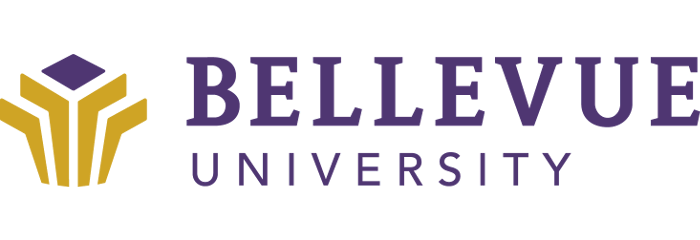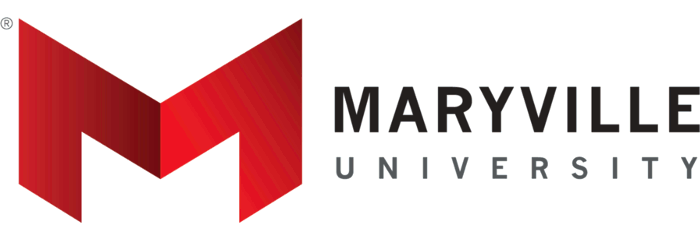Most Popular Online Data Science Degrees
Our list of the most popular online data science degree programs features accredited schools with the greatest online student populations. We use data from the National Center for Education Statistics (IPEDS), manually verified for accuracy.
Key Takeaways:
- #1 Southern New Hampshire University Online leads with 154,212 online students overall.
- Maryville University holds the highest graduation rate at 72%.
- Our list of 11 popular data science degrees online all have over 7,500 distance learners at the bachelor's level.
Our methodology prioritizes schools by online enrollment at the program level, helping you identify schools with the strongest virtual infrastructure and support. We also included expert insight from a professional in the field to give prospective students a clearer picture of where an online data science degree can lead. See Eugene Lebedev’s perspective below.
List Of Accredited Online Data Science Schools
| School | Online Enrollment | Annual Tuition |
|---|---|---|
| Southern New Hampshire University Online | $9,900 | |
| Western Governors University | 135,822 | $8,300 |
| Arizona State University, Online | 52,896 | $24,780 |
| University of Maryland Global Campus | 44,794 | $14,970 |
| Liberty University | 39,168 | $11,700 |
| Columbia Southern University | 13,111 | $8,100 |
| Bellevue University | 10,478 | $13,470 |
| National University | 7,589 | $4,162 |
| University of Arizona | 7,535 | $15,750 |
| Regent University Online | 3,407 | $10,880 |
| Maryville University | 3,194 | $16,200 |
Most Popular Online Data Science Degrees
- Online Enrollment: 154,212 enrolled
- Annual Tuition: $9,900
- Location: Manchester (NH)
Why we like them: SNHU ranks #1 for online enrollment, placing you among a vast network of over 154,000 online learners. With such a large base, it's no wonder the student support is top notch, with 24/7 tutoring and dedicated career advising. SNHU’s BS in Data Analytics also has a unique concentration in Project Management for STEM, setting it apart.
- Online Enrollment: 135,822 enrolled
- Annual Tuition: $8,300
- Location: Salt Lake City (UT)
Why we like them: WGU earns its #2 ranking due to its exceptional scale in online enrollment, with more than 135,800 online learners, a figure that places it in the top 1% nationwide. WGU’s data analytics program stands out for its integration of industry-recognized certifications directly into the curriculum (with no additional costs or time added).
- Online Enrollment: 52,896 enrolled
- Annual Tuition: $24,780
- Locations: Tempe (AZ) (and 4 others)
Why we like them: The most unique aspect of ASU's online bachelor’s in data science is its custom-created online courses designed specifically for the virtual learning environment, rather than adapting existing on-campus content. The program's 100% online and self-paced. And if it sounds too good to be true, ASU also has a 90% recommendation rate based on over 700 reviews we've collected.
- Online Enrollment: 44,794 enrolled
- Annual Tuition: $14,970
- Location: Adelphi (MD)
Why we like them: UMGC’s program includes lifetime career services, along with an accelerated pathway to graduate-level studies. And this data science program prepares you directly for several valued industry certifications, such as AWS Certified Machine Learning and Microsoft Power BI Data Analyst Associate.
- Online Enrollment: 39,168 enrolled
- Annual Tuition: $11,700
- Location: Lynchburg (VA)
Why we like them: Liberty's data networking program has embedded preparation for industry-recognized certifications such as Cisco's CCNA and CompTIA A+, which can greatly improve your employability. The program is accredited by both SACSCOC and ACBSP — placing Liberty among the exclusive 3% of business schools globally with this dual accreditation.
- Online Enrollment: 13,111 enrolled
- Annual Tuition: $8,100
- Location: Orange Beach (AL)
Why we like them: While not a pure data science degree, CSU’s program provides foundational competencies — such as systems analysis, decision-making frameworks, and IT problem-solving — that are essential for entering data-oriented roles or transitioning into graduate-level data science programs.
- Online Enrollment: 10,478 enrolled
- Annual Tuition: $13,470
- Location: Bellevue (NE)
Why we like them: BELU's curriculum weaves together Python programming, big data technologies such as Hadoop and Spark, and hands-on predictive analytics using advanced models like SVMs and random forests. You will also benefit from a dedicated course on generative AI — exploring large language models, prompt engineering, and retrieval-augmented generation.
- Online Enrollment: 7,589 enrolled
- Annual Tuition: $4,162
- Location: La Jolla (CA)
Why we like them: NU's data science bachelor's has three available concentrations, including AI and Machine Learning, Cybersecurity Analytics, and Bioinformatics. It has a required three-month capstone project that partners you with small businesses or organizations, emphasizing portfolio development and actual industry networking.
- Online Enrollment: 7,535 enrolled
- Annual Tuition: $15,750
- Locations: Tucson (AZ) (and 1 other)
Why we like them: UArizona offers six areas of emphasis: Software Development, Information Management, Network Operations, Applied Artificial Intelligence, Cloud Computing, and DevOps. Specifically, it emphasizes state-of-the-art cloud technologies overall, including courses on AWS and Microsoft Azure, containerization, and virtualization.
- Online Enrollment: 3,407 enrolled
- Annual Tuition: $10,880
- Location: Virginia Beach (VA)
Why we like them: Regent Online's B.S. in Business Analytics has its foundation in Christian principles, offering a curriculum that covers in-demand technical skills alongside ethical decision-making and leadership. Its capstone project uses real business cases.
- Online Enrollment: 3,194 enrolled
- Annual Tuition: $16,200
- Location: St. Louis (MO)
Why we like them: Maryville's BS in Data Science includes technical training in languages and tools like Python, R, SQL, and SAS, along with hands-on, project-based learning in every course. Another distinctive option is the ability to concentrate in Actuarial Science.
Eugene Lebedev on Breaking Into Data Science Online

Managing Director, Vidi Corp LTD
"I run a data analytics agency and I have a Masters in Business Analytics. [To] enter the data science field... you simply need a good portfolio of projects. This is something you can definitely achieve by studying online.
In most cases it is not realistic to land an AI engineer role right after graduation. Where I personally found success is applying to a Power BI analyst intern role after my graduation. This landed me a job in Autodesk which is a public US software company.
I feel an online degree + some real world experience is usually a good preparation for most data science challenge's.
Many people that I hire for development roles in our company have done an online program... I feel an online degree + some real world experience is usually a good preparation for most data science challenge's... I recommend the students to focus on more basic data analytics tools like SQL, Excel, Power BI and Tableau.
Marketing analytics is in a lot of demand but this field doesn't pay as well because there are lots of cheap software tools in this space. In my personal experience, [the] business intelligence field is growing quite fast because people are more inclined to use low-code technologies nowadays. This field pays really well in my experience as well.
One piece of advice that I have is do a lot of projects on a side - pick up freelancing gigs, do online courses, try to build your own tools. These are the things that will separate you from the other people applying to the same jobs as you."
EXPERT TIP
"I recommend focusing on picking up small freelancing gigs to build your portfolio. This would give you real-world case studies which are super valuable. You can find those gigs on platforms like Upwork, freelancer.com and fiverr."
What Is Data Science?
Over the last decade, Big Data has become essential to the functioning of organizations. Data science degrees, in turn, train students how to help these organizations meet their informational needs. While undergraduate programs typically cover fundamental concepts in data collection and analysis, graduate programs offer students the chance to conduct original research or gain specialized training in technical areas, such as data mining, data engineering, or data management.
It's a common misconception that data science is solely about applying statistics to large amounts of information. In fact, data science is a fast-evolving, multidisciplinary domain that includes aspects of computer engineering — such as machine learning and artificial intelligence — as well as advanced math, economics, and business concepts. Combining insights from these disciplines, this field looks at the science behind gathering, processing, analyzing, and communicating data to help organizations and individuals make well-informed decisions.
Data science is a fast-evolving domain that includes aspects of computer engineering as well as advanced math, economics, and business concepts.
There are, therefore, two distinguishing features of data science. The first is its emphasis on using technology to structure and draw insights from different sources of information. The second, more distinctive aspect of this field is its focus on the entire data life cycle, from collection to communication.
What Will I Learn in a Data Science Program?
Data science programs generally include coursework in the broad subfields of machine learning, computer science, statistical research, math, and data processing. Common classes in these areas can include data systems, artificial intelligence, statistics in machine learning, and advanced data analytics. Aside from gaining this technical knowledge, students may also have the chance to develop their business, communication, and critical thinking skills.
While these learning outcomes may be common across several programs, data science curricula constantly evolve to reflect technological and business advancements. Moreover, degrees at different levels cover data science theories and subjects in varying amounts of detail, with undergraduate programs including introductory classes and graduate ones offering more room to explore individual areas of interest. As a result, data science curricula can differ significantly from program to program.
Curious to explore similar degrees? Check out our curated lists for the best online computer science degrees and online math programs.
Earning a Data Science Degree Online
There are some clear advantages to earning a data science degree online. First, online data science programs have the same curriculum and requirements as on-campus degrees and are, therefore, just as likely to be valued by future employers. Additionally, the flexible learning format can suit non-traditional students who work full-time or have family responsibilities. As a discipline that involves, in part, learning how to apply computer science theory, some aspects of data science may also translate well onto the online learning format.
Nevertheless, distance learners taking all their classes online should expect a different learning environment than their on-campus peers. For instance, there may be fewer opportunities to network with fellow students or interact with faculty members. Completing assignments and coursework alone may also feel isolating or daunting to some. While many programs include regular check-ins with faculty members, dedicated communication boards, and 24/7 tech support to make learning easier, distance learners should remember that earning a degree online requires self-discipline, time management, and motivation.
What Can I Do With a Data Science Degree?
If an organization uses data or information to market products, make strategic decisions, or analyze industry trends, chances are it employs a team of data scientists. This means graduates with a data science degree can find employment in numerous sectors, including business, government, and nonprofits. Moreover, with a strong set of technical abilities, as well as soft skills in areas such as communication and problem-solving, they can also explore data science careers of a non-technical nature. For example, in addition to working as database administrators or statisticians, they may be qualified for market research, business strategy, and product development roles.
Graduates with a data science degree can find employment in numerous sectors, including business, government, and nonprofits.
With a large number of opportunities available, it's important to remember that some careers may be tied to degree level. While individuals with an undergraduate credential may be ready to apply for entry-level positions that require basic data literacy, mid-level roles may require applicants to have the sort of advanced knowledge and experience gained in a master's program. Those who are determined to work in research or academia, meanwhile, will typically require a doctorate.
Is a Data Science Degree Worth it?
Potential Advantages
-
A data science degree can help you secure many different types of computing occupations. Since students gain a range of skills related to data collection, analysis, and communication, they often qualify for multiple job opportunities related to information technology.
-
Demand for data scientists is expected to remain high. Degree holders may find a booming labor market when they graduate, and, with employment opportunities expected to through 2032, aspiring data scientists have an optimistic job outlook.
-
Data science is an exciting field full of chances to innovate. If you're a creative person that enjoys a challenge, this constantly evolving field may align with your personality and career goals.
Potential Drawbacks
-
Without certification, a data science degree alone may not make you a competitive job candidate. Though voluntary, data science certifications can give you an edge on the job market by showing employers you have formalized training in a specific area. However, these require time and money to earn.
-
As a data scientist, your job description may be blurry. This is a relatively young field in which professionals are still crafting their roles and responsibilities. If you prefer a career with more day-to-day certainty, data science may not be the right fit.
An accredited data science degree can prepare you for a lucrative career in technology. The Bureau of Labor Statistics (BLS) estimates that individuals employed in make an annual median salary of $100,530, which is more than double the national average for all occupations. But aside from earning potential, the value of a data science degree will also depend on your career goals, personal circumstances, and financial situation.
Below is a list of potential pros and cons to help you decide whether a data science degree is right for you:
FAQs about Data Science Degrees
How Hard Is a Data Science Degree?
A data science degree — particularly one at the graduate level — can be challenging for some students. Data science is an interdisciplinary field that is based heavily on learning advanced math concepts and computer science theory, as well as gaining hands-on experience with research methods. The technical nature of these subjects can make data science concepts hard to grasp for those who don't have much real-world or academic experience in STEM-related fields.
How Long Does It Take to Get a Data Science Degree?
Time to completion depends primarily on the degree level. Full-time students can finish a bachelor's degree in four years, while those enrolled in associate or master's programs can earn their respective credentials in two years. As mentioned above, doctoral programs take significantly longer, given the requirements students need to meet to graduate. Part-time students who take fewer courses per semester typically take longer than these average completion times.
Can I Get a Data Science Job Without a Degree?
With a shortage of skilled data analysts in the labor market, it may be possible to land a job without a degree. Bootcamps, for instance, are designed to train students in data science techniques, and some even help with job placement. However, without a formal data science education, you may not be able to advance your career or gain voluntary certifications that can make you a competitive candidate for higher level positions. A data science degree may also prepare you to better meet evolving organizational needs in this field, making graduates with this credential more employable.
Student Reviews of Online Data Science Programs
There is very littl einstruction, it is more learn on your own here. There is a syllabus but it is usually pretty vague. There is a rubric and that is how you are graded. Follow the rubric to the smallest detail and you will get a good grade. No original thought or ideas are really required, just give a minimum response to each item in the rubric. The instructors seem to be mostly business folks who need an extra $2000 for 8 weeks of work. They vary greatly in ability and motivation, Very few do... Read More
Review Date: 7/21/2018
Would Recommend: No
Helpful for Career: No
So far I would rate the school in general well enough. Every class has its challenges and you do have to know the material, although some classes in my major program seem to repeat specific coursework or go over the same concepts. Rubrics are sometimes confusing and require some back and forth with the instructor to clarify meaning. I think my biggest gripe is that a lot of instructors are very slow to respond to board posts, don't even check their email, and give cryptic responses to plainly phrased... Read More
Review Date: 11/28/2017
Would Recommend: Yes
Helpful for Career: Yes
The school very much prepared you for what you needed to know in the work field. The professors were always super helpful and really helped us to be able to know what we needed to know for tests. They were also super good educators when you didn't understand something they were able to explain it to you very clearly and concise making it an efficient learning environment for all.
Review Date: 8/8/2025
Would Recommend: Yes
Helpful for Career: Yes
The school very much prepared you for what you needed to know in the work field. The professors were always super helpful and really helped us to be able to know what we needed to know for tests. They were also super good educators when you didn't understand something they were able to explain it to you very clearly and concise making it an efficient learning environment for all.
Review Date: 8/8/2025
Would Recommend: Yes
Helpful for Career: Yes













